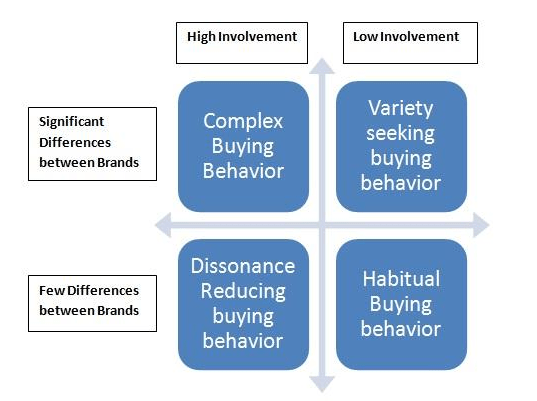- Strategic – Mission & vision
- Operational – Goals and metrics
- Tactical – Implementation
- Political – buy-in and commitment
Patterns, types, segmentation
Consumers’ behavior is complicated, but if you can segment them and understand their behavior types, then you will know how to gain their trust.
What is the meaning of consumer behavior
Consumer behavior is the study of consumers and the decision processes they use to choose, consume, and dispose of products and services. This includes emotional, mental, and behavioral responses. Consumer behavior incorporates ideas from several disciplines, including cultural anthropology, social psychology, psychology, sociology, biology, chemistry, and economics.[1]

Why is it important?
In a consumer’s shadow war, businesses are not fighting against each other, they are fighting to win customers. You need to understand consumer behavior to influence engagement and the buying decision.
Studying consumer helps your business decide how to present their products or services in a way that generates a maximum impact on consumers. Understanding consumer buying behavior is the critical secret to reaching and engaging your clients, and convert them to purchase from you.
A consumer behavior analysis, you are not listening to yourself. Instead, you need to listen to your customer.
- What consumers think and how they feel about alternatives (brands, products, etc.);
- What influences consumers to choose between various options;
- Consumers’ behavior while researching and shopping;
- How consumers’ environment (friends, family, media, etc.) influences their behavior.
Different factors often influence consumer behavior, and there are three categories of factors that influence consumer behavior:
- Personal factors include interests and opinions that can be influenced by demographics (age, gender, culture, etc.).
- Psychological factors are the responses to the message and are dependent on the perceptions and attitudes.
- Social factors such as family, friends, education level, social media, income, can all influence consumers’ behavior.

Types of consumer behavior
There are four main types of consumer behavior:
- Complex buying behavior: This type of behavior is an infrequent, expensive purchase. Consumers are highly involved in the process, and they do a lot of research before committing.
- Dissonance-reducing buying behavior: The consumer is also highly involved in the purchase process but has difficulties determining the differences between brands – approaching commoditization. This ‘dissonance’ has a blowback effect called buyer’s remorse. The consumer will seek affirmation and confirmation.
- Habitual buying behavior: Habitual purchases are like utilities, and the consumer has very little involvement.
- Variety seeking behavior: In this situation, a consumer purchases a different product not because they weren’t satisfied with the previous one.
[1] https://bbamantra.com/determinants-factors-influencing-consumer-behaviour/